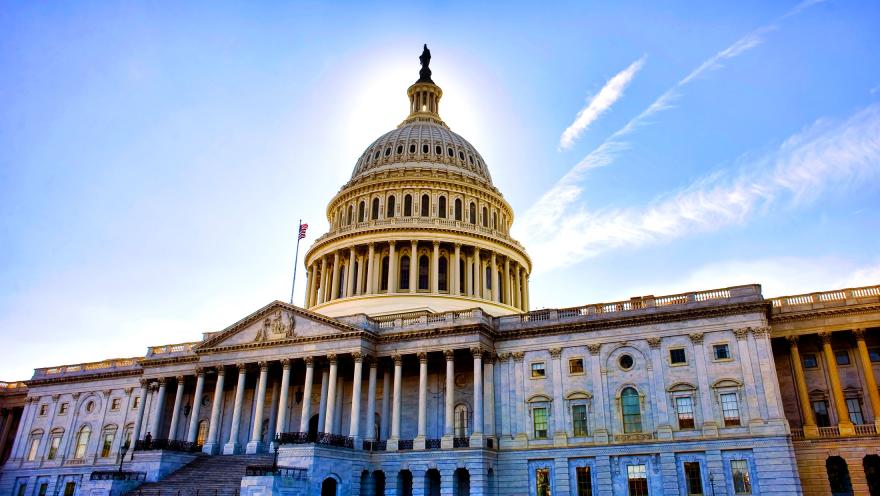ALS Association chapter executives from across the country held more than 250 meetings with members of Congress Wednesday as part of the Association’s annual “fly in” advocacy push. While the meetings generally occur in-person in Washington, D.C., this year’s discussions shifted to virtual platforms in response to the ongoing COVID-19 pandemic and emerging social distancing and shelter in place rules across the country.
Chief among the concerns of ALS advocates is making sure that legislation being drafted in response to the pandemic includes protections for people living with ALS and their caregivers, including protecting access to noninvasive ventilators and making sure people with ALS are not forced to wait five months to access Social Security Disability Insurance.
To hear an in-depth discussion of how the Association is advocating during the pandemic, listen to the latest episode of Connecting ALS.
ALS Association advocates have their sights set on an ambitious agenda this year with a set of public policy priorities that includes doubling funding for research done through the Department of Defense ALS Research Program (ALSRP), additional increased funding for federal ALS research programs, protecting access to noninvasive technology, and making sure people with ALS do not have to wait for Social Security benefits they have earned.
Congress should again double funding for ALSRP from $20 to $40 million. Studies have found that people who served in the military are up to twice as likely to develop and die from ALS as those with no history of military service. Yet, ALSRP has only been able to fund half of the most promising research applications it receives.
Last year, our advocates helped lead the campaign to double funding from $10 to $20 million for the program. This year, we are calling on you to fight even harder to fully fund research at the DOD.
The Association is also calling on advocates to fight for at least $10 million in funding to continue the Centers for Disease Control and Prevention’s National ALS Registry/Biorepository and at least $44. Billion for the National Institutes of Health to increase spending on ALS research – a $3 billion increase from last year.
In addition to working to increase funding into research and a cure, ALS Association advocates will be fighting this year for public policies that make sure people with ALS are living longer, better lives with access to technologies and benefits they need.
The Safeguarding Medicare Access to Respiratory Therapy (SMART) Act would make sure people with ALS who are Medicare beneficiaries do not lose access to noninvasive ventilators and support from respiratory therapists. The bill would remove noninvasive ventilators from competitive bidding requirements for five years and require Medicare to update national coverage policies.
The ALS Disability Insurance Access Act would make sure people with ALS do not have to wait an additional five months after their diagnosis to access Social Security Disability Insurance benefits that they have earned. Current law imposes a five-month waiting period, but due to the progressive nature of ALS, that waiting period must be waived.
The Justice for ALS Veterans Act would make sure that surviving spouses of veterans who die from ALS are not denied the same compensation as other families of veterans. The Defense Department recognizes ALS as a service-connected disease. Because of that, families of deceased veterans with ALS receive a dependency and indemnity compensation. Families of veterans who live at least eight years with a service-connected disease also receive a supplemental dependency and indemnity compensation, but due to the progressive nature of ALS, too many families are denied this supplemental benefit.
To learn more about The ALS Association’s 2020 Public Policy Priorities, click HERE.
To become an advocate, click HERE.


Join the conversation. Please comment below.